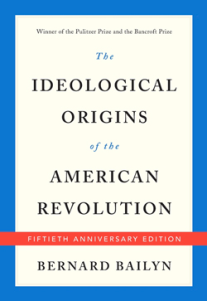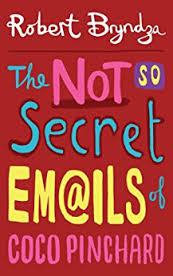We continue “The Ideological Origins of the American Revolution at 50,” our joint roundtable with the S-USIH blog. Today’s post is by Jonathan Wilson, an adjunct faculty member at the University of Scranton and Marywood University. He studies ways that intellectuals—elite and otherwise—articulated American national identity in eastern cities during the early nineteenth century.

Upon first reading The Ideological Origins of the American Revolution, I found it liberating. (That places me alongside Michael and Sara more than Ken this week.) True, Bernard Bailyn’s book was yet another attempt to credit elite white men for an idealistic national founding. From my perspective at the time, however, it modeled a way to study the ideas of relatively ordinary people. Bailyn depicted revolutionary thoughts as the work of communities, not individuals. He showed me that the life of the mind can encompass the inarticulate, the half-said, even the irrational, in ways that historians can analyze. This was powerful.
The details are hazy now, but I probably encountered Bernard Bailyn’s book in two different undergraduate courses. The book spoke to reality as I had lived it: as a member of not an intellectual elite but an oppositional subculture. In my community, we were obsessed with ideas. Yet we absorbed them ecologically, for the most part, not through systematic study. They came to us largely through ephemeral media. Like Bailyn’s subjects, furthermore, we imagined our ideas to be precious inheritances from the past, as well as tools for safeguarding liberty from conspiracies in the future.
Specifically, my college was a small evangelical Christian university in East Texas. It was deeply committed to its religious subculture. Nevertheless, this college had no formal denominational affiliation, did not bar enrollment to people with other beliefs, and attracted students from many places around the world. Debates among students were spirited, if insular. To cultural outsiders, we must have sounded odd. Apathetic we were not.
This context, together with my general background, meant Bailyn’s late-colonial culture was a world that felt authentic and familiar when I entered it.
Bailyn described most of his subjects as intellectually undistinguished yet coursing with intellectual energy. Few of them had much skill as writers or much educational polish. Few became national leaders. Many remain justly anonymous. Bailyn gently mocked their pretensions—What did it cost in scholarly effort to add the footnote “*Locke” to a vague reference to the social contract?—How many of these writers had actually cracked open a copy of Beccaria? Yet he took seriously their intellectual life on what he believed to be its own terms.
This was the sort of intellectual life that animated my friends and the people I grew up with. Most of us were hardly members of an American elite. For that matter, it’s the sort of intellectual life that animates most of my friends now, including people in many secular and left-leaning subcultures. (How many people tweeting today about, say, the social construction of race or gender have closely studied the relevant scholarly literature?) But I was particularly sensitive about it at the time.
Whether mental life “causes” our political behavior is a simplistic question; I would not frame a historical discussion that way. However, intellect, of one sort or another, is how many of us experience the world. We absorb concepts, fit them together into worldviews, use them to translate stimuli into meaning, and most importantly, formulate them as a basis for negotiations. Sometimes—more often than many people assume—they also give us the tools to change our minds.
At the time, I was acutely aware of all of this. I had never understood intellect as something reserved for a few. But until reading Ideological Origins, I had never seen a clear model for writing historically, systematically, and critically about this kind of mental life in America.
In other words, Bailyn’s work suggested that I might be able to write about early American history in terms that made sense to me.
I do not intend to make a formal defense of Bailyn’s work here, or to address its limitations. If I did, I would turn to an essay published a decade later by his protégé Gordon Wood. (I discovered it in my third year of graduate school, to judge by my own marginalia.) Given Wood’s reputation today, this may seem unlikely to persuade detractors. Yet in 1979, in the edited volume New Directions in American Intellectual History, he presented a case for a highly inclusive understanding of the intellectual historian’s project.
Drawing lightly on insights from various social sciences, Wood argued against the idea that the purpose of intellectual history is to identify causes of events. “Because man is a symbol-making, language-using animal who gives meaning to everything he does,” Wood wrote, “culture and society, beliefs and behavior, are really of a piece with one another. The human world cannot be sharply divided between an objective physical reality and man’s subjective perception of that reality.” He continued:
Ideas affect behavior not by being motives for action, but by giving meaning to that action and defining and delimiting it. They do so because, as philosophers, linguists, and social scientists are now telling us, ‘the nature of human thought’ [to quote Clifford Geertz] is ‘a public and not, or at least not fundamentally, a private activity.’ Human thought is necessarily rhetorical, a discourse involving communication with others. Men wrestle with ideas and symbols in order to explain, justify, lay blame for, or otherwise make sense of what is happening, not just for themselves but for others. Discourse and communication and ultimately behavior are possible only because they take place within a public system of conventions and values, that is, meanings.[1]
In a way, Wood’s essay represented a challenge to Bailyn’s claims, or at least to his way of presenting them. But it is also a challenge to readers. It invites us to reinterpret the term origins in Bailyn’s title as something more expansive than causes.
Reading Ideological Origins yet again now, I am scandalized that the entire book mentions, by my count, only four women—briefly—and perhaps no person of color. (Have I missed someone? Surely I must have.) For a book about a revolution, it has an almost dreamlike lack of interest in violence or class strife. Ironically, the postscript added in 1992, depicting the Constitution as a natural outgrowth of revolutionary ideology, has aged worse than the rest of the book. There are other problems. Yet I can see how this book has shaped my own work from the start, expanding rather than limiting its subject matter.
If there is value in the lives of ordinary people, then there is value in studying the ways they make meaning. Asserting the intellectual dignity of unexceptional minds in conversation, Bailyn’s Ideological Origins pointed toward new ways to undertake that study.
_______________
[1] Gordon S. Wood, “Intellectual History and the Social Sciences,” in New Directions in American Intellectual History, ed. John Higham and Paul K. Conkin (Baltimore and London: Johns Hopkins University Press, 1979), 32 and 35.
Spread the word:





